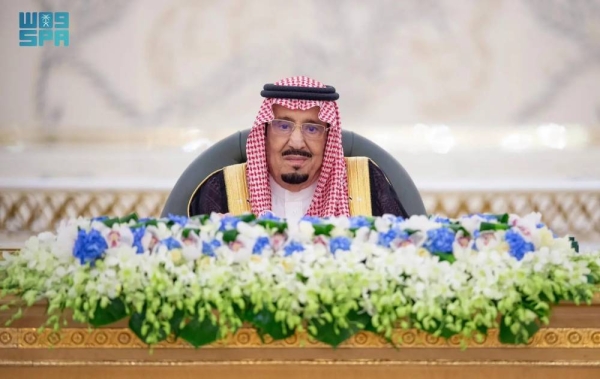The weekly session of the Saudi Council of Ministers, chaired by Custodian of the Two Holy Mosques King Salman in Jeddah, emphasized the government’s commitment to the education sector and the quality of its outputs. The Cabinet highlighted the achievements and successes in the educational field, including global classifications received by Saudi universities. Minister of Media Salman Al-Dosary stated that the government appreciated the strength of the Kingdom’s economy, reflected in the stable inflation rate of 1.5 percent last month, due to proactive plans to counter rising global prices.
During the session, the Cabinet discussed messages from the presidents of Guinea and Maldives aimed at strengthening bilateral relations with Saudi Arabia. The Council also reviewed the state’s overall work, focusing on enhancing cooperation with countries and organizations worldwide to improve joint work efficiency. The first strategic dialogue between Saudi Arabia and the World Health Organization (WHO) was lauded, with an agreement reached to continue bilateral coordination in supporting global health initiatives and combating health crises.
The Council followed up on regional and global developments, particularly Saudi efforts with friendly countries and international organizations in supporting Sudan, delivering humanitarian aid, and stopping hostilities in compliance with international humanitarian law. In domestic affairs, the Cabinet commended government agencies for their efforts in serving citizens and expatriates, enhancing digital platforms, improving quality of life, facilitating business practices, and boosting government work efficiency.
The government’s approval of a massive transport program to enhance Riyadh’s main roads and ring roads was praised as a significant improvement in transportation services to accommodate population growth and urban development. Additional topics discussed included Shoura Council’s role in reviewing conclusions of various councils and the authorization of cooperation agreements with countries such as the United Kingdom, Cyprus, and the Czech Republic in various fields.
Key decisions taken by the Council included approving a headquarters agreement with the Arab Federation of Internal Auditors Associations, visa exemption agreements with Cyprus, MoUs for cooperation in nuclear control matters with the Czech Republic, and mutual assistance in customs matters with Tunisia. The Cabinet also authorized negotiations for scientific geological cooperation with Mauritania, cooperation agreements in land transport, enhancing competition and combating monopolistic practices with Iraq, and corporate social insurance cooperation with Jordan.
Moreover, the Cabinet approved a MoU for preventing and combating corruption with Malaysia, social insurance cooperation with Jordan, and news exchange with Bahrain. The Council also extended the indicative period of the Unified Organic Inputs and Products Law in the Gulf Cooperation Council countries and made amendments to the Universal Postal Union’s regulations and conventions during the 27th Congress. Overall, the session underlined the government’s commitment to education, economic stability, and international cooperation to enhance various sectors and improve citizens’ lives.










